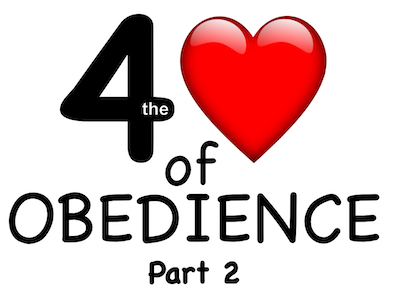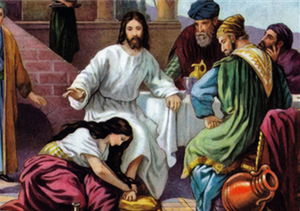If you were asked to boil down the Gospel message into just one word, what would that word be? Most people would probably say, “The heart of the Gospel is love!”
In fact, the word love and its derivatives is one of the most used words in the entire Bible. And, there is no greater persons in whom we see love demonstrated than Jesus Christ and God the Father. Jesus laid down his life for us well before we ever knew him, and “God is love,” according to the apostle John. Having someone to love and being loved are two of mankind’s greatest needs and God graciously provides His love for us on us in a variety of ways. And of course, love is a two way street.
Loving Christ
If you are a disciple of Christ, you have returned the love God gives by obeying his commands and dedicating your life to the cause of Christ. Christians love Christ! When we look through the Gospels we find many other people who loved Jesus too. Mary and Martha come to mind; Mary Magdalene for sure. When we look for the people Jesus loved, we might recall the intensely emotional event at Lazarus’ tomb. Everyone saw his love for Lazarus because, “Jesus wept.” The Bible says, “Jesus loved Mary, Martha and Lazarus.” We also have the humorous veiled references John makes about himself in his Gospel as “the one whom Jesus loved.” We also have abundant societal references to Christ’s love. “Jesus loves the little children,” as the song goes. And of course let’s not forget, “Jesus loves me, this I know.” Without question, Jesus has a heart of love.
But, did you know there is only one specific individual in the entire Bible where it explicitly says, “Jesus loved him?” Who’s that and how would you like to be that guy? Only one individual… in all of scripture… is singled out as being the specific object of Christ’s love! Do you know who that was? It’s not Lazarus!
Introducing the Rich Young Ruler
This is one of my favorite characters in all the Bible – The Rich Young Ruler. So, why does the Bible say in Mark 10:21, “Jesus looked at him and loved him?” The answer is found in this young man’s resume. You know, there’s a lot of information in a resume. So, let’s do a little review of this fellows’.
We meet this guy in no less than three Gospels and as it turns out, there are a ton of interesting facts established which eventually point to a stunning revelation. By the end of this podcast, I think you will agree, this is a most impressive resume indeed.
The story of The Rich Young Ruler appears in Matthew 19, Mark 10 and Luke 18. God evidently wants us to notice this guy. Let’s read about him from the Mark 10 account.
Mark 10:17-23
As Jesus started on his way, a man ran up to him and fell on his knees before him. “Good teacher,” he asked, “what must I do to inherit eternal life?”
“Why do you call me good?” Jesus answered. “No one is good–except God alone. You know the commandments: ‘Do not murder, do not commit adultery, do not steal, do not give false testimony, do not defraud, honor your father and mother.’”
“Teacher,” he declared, “all these I have kept since I was a boy.”
Jesus looked at him and loved him. “One thing you lack,” he said. “Go, sell everything you have and give to the poor, and you will have treasure in heaven. Then come, follow me.”
At this the man’s face fell. He went away sad, because he had great wealth.
Jesus looked around and said to his disciples, “How hard it is for the rich to enter the kingdom of God!”
A Tragic Beginning?
What a seemingly sad story; a man runs up to Jesus and falls on his knees. His heart is obviously burning with a question. It’s the same question you and I should probably ask if we could meet with Jesus for just one minute. “Lord, will I get to go to Heaven?” Truth be told, there is absolutely no other question which is more important to every human heart. Everyone, from the depths of their soul, wants to know if they will be “OK” when everything is over and the final curtain falls. We all long to know that someday, somehow, everything will be all right and we will be counted worthy of heaven. All other questions we might want to ask the Son of God, pale in comparison to this one vital question. This question speaks to the entire purpose of the Bible, the entire purpose of the Christian faith and the very reason for Christ’s sojourn to the earth. He loves us and wants all men to be saved.
Click here to read the rest of this post.







